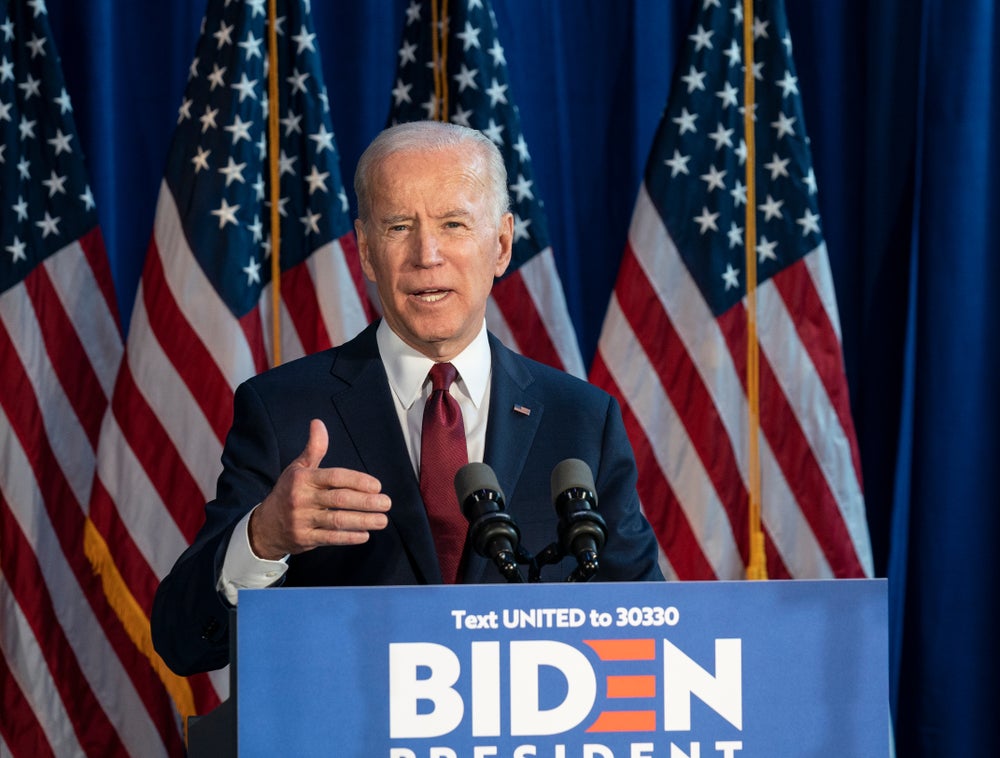
Having experienced an historic victory in the 2020 US presidential election, Joe Biden will now be preparing to deliver his all-important energy strategy for the nation.
The Democrat candidate has earmarked $1.7tn worth of investment over the next 10 years into a “clean energy revolution”, which his campaign says will “revitalise the US energy sector”, boost growth economy-wide, and transform the country into a clean-energy “superpower”.
Biden’s energy plan, which focuses on addressing the threats posed by climate change, is in stark contrast to the actions of outgoing president Donald Trump, whose administration has championed a free-market policy in which all fuels and technologies have an opportunity to contribute to the national goal of energy dominance.
Biden will enter the White House with a goal of setting the US on course for net-zero greenhouse gas emissions by 2050 – a target that has recently been set by a number of the world’s biggest economies – and will take the US back into the Paris Agreement.
According to Ed Crooks, Wood Mackenzie’s vice-chair of the Americas, the key influences set to shape the US energy industry are “likely to be market forces”, which he suggests was also the case under Barack Obama and Donald Trump.
Here are five impacts Crooks believes could be about to affect the nation’s energy industry following Biden’s election victory.
Impacts of the Joe Biden election victory on US energy
1. A boost for offshore wind
The Trump administration has “slowed the process” of approving offshore wind and proposed to close off a section of the US Atlantic coast from Florida to Virginia, according to Crooks.
He claims a Biden administration will “act faster to support states and companies seeking to develop offshore wind industries”.
Decarbonised power generation is a crucial element of the energy transition, and the president-elect’s clean energy plan has pledged to make the US electricity system emissions-free by 2035.
This would involve accelerated development of domestic wind and solar industries, with the plan earmarking $400bn of investment for clean energy and innovation targeting “technological breakthroughs” to create new jobs and reduce emissions.
2. Restrictions on oil and gas development

There will not be a ban on fracking, but Biden has pledged to end sales of new leases for oil and gas development on public lands and waters.
Onshore, Crooks says the impact of this action would be “minimal”. But he adds that offshore, the effects would be “more significant”, although they would “take some time to become apparent”.
There are clear environmental concerns surrounding fracking activities, but over the course of the past decade, the shale industry has catapulted the US from being a relatively minor player to becoming the world’s largest oil producer.
Crooks claims a ban on new leasing, if permanent, would mean that by 2035 US offshore oil and gas production would be about 30% lower than if lease sales had continued.
3. New hurdles for oil and gas infrastructure projects
Over the course of Trump’s tenure, he has made every effort to aid the country’s fossil fuel industries – such as oil, gas and coal – by deregulating a number of climate-related policies implemented during the Obama administration.
Biden, who was vice-president under Obama, has said he plans to immediately reverse Trump’s rollback of 100 public health and environmental rules that were previously in place.
As a result, Crooks says that decisions on federal permits for infrastructure projects will take into account their implications for greenhouse gas emissions and climate change, which will create “new hurdles for developers of oil and gas pipelines and export facilities”.
4. Support for electric vehicles
Biden plans to impose tighter fuel economy standards, which Crooks believes will “help sales of electric cars”.
By 2030 there could be four million EVs on US roads as a result of those standards and that is almost 60% more than if the Trump administration’s rules had taken effect.
But the impact on US fuel demand this decade will be “minimal”, according to the Wood Mackenzie analyst.
He adds that even four million EVs represent only about 1.5% of the total of 275 million vehicles that are expected to be on US roads in 2030.
5. No quick relaxation of sanctions on Iran
Biden has been strongly critical of Trump’s decision to take the US out of the international deal over Iran’s nuclear programme.
Although the president-elect has promised a change in approach, Crooks says that “does not mean he will move quickly to relax the sanctions” that have been imposed since 2018.
He adds that negotiations about a possible renewed deal are “not likely” to begin until June 2021 at the earliest, after Iran’s elections, and there is “no guarantee that the two countries will reach an agreement”.






